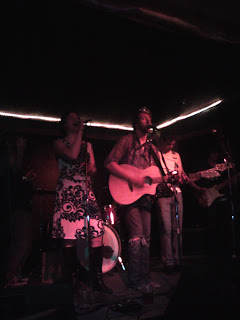A note of explanation: Although I have lived away from home since I was seventeen and a freshman in college, I have rarely gone more than a few days without talking to my parents. Last week, for the first time since I was a child, they left for a vacation abroad. And, for the first time since I was a child, I am having separation anxiety issues. I have become so accustomed to passing on small tidbits of information and trivia or calling my mom to tell her the amusing anecdotes of my daily life that my parents were scarcely gone 24 hours and I was itching to dial their phone number. To ease my need to share absolutely everything with my parents, I have decided to keep a running list of musings directed to my parents (and since they make up half of my current following, I think it will be okay).
Day 1: Friday, September 23:
So I am listening to Laurie R. King’s The Game and just hating that you are unavailable to talk with. I am just loving this newest adventure! I love that the men in these novels never seem to understand that Mary Russell-Holmes is no ordinary female. When she whips out her throwing knife and tosses it across the room (to land perfectly in a foul painting) in order to prove her point to yet another doubting man, I was instantly transported from India to a small room in Palestine and the English Nesbit was traded for the enigmatic Mahmoud. Mary Russell (and more likely Laurie King herself) is wicked and I love it.
I really have to admire King’s ability to craft such real, believable characters. I have noted this before, primarily in Justice Hall--I loved the novel so much because I loved Mahmoud and Ali. They were real characters to me, real people, and I shared in each of their emotions. I love Russell best, though. Partly because she’s so clever and determined, and she has compassion, razor sharp wit, and gumption. She seems like the kind of person I would like. The scene in the small Indian shop where Sunny buys Russell the pretty amber necklace was so touching, as Mary analyzes the situation and regrets the duplicity her profession so often requires. These novels so often evoke a multitude of emotions--delight at the capers Russell gets into and the bickering conversations between Russell and Holmes, but also pain and sadness as the volatile world of the 1920s intrudes upon the fictional world of Sherlock Holmes. I appreciate that.
Still working my way through Emma. As I read, I can’t help but compare the novel to the various movie versions we’ve watched. In the movie versions, Emma is just so much more likeable. I know that in large part this is because in the movies we are not privy to Emma’s thoughts, which, in the novel, reveal the depths of Emma’s self-absorption and silliness. I think it is also due to the fact that the directors and screenwriters adapt the novel to make Emma more likeable so that audiences will warm to her quickly. We as readers have more time to acquaint ourselves with our heroine.
I’m also struck by how similar Emma and Mrs. Elton are. This is not something that comes through in the movies, but is very apparent in the novel. I’m amused that Mrs. Elton appears to be as meddlesome as Emma, though not as subtle or refined in her interfering. And the fact that Emma detests Mrs. Elton for their shared traits is just delightful. Delightful.
 |
| Tyler Fortier and band at a concert this last spring; his new CD "Bang On Time" will be amazing, trust me. |
Day 2: Saturday, September 24:
Got Ralphie’s note in the mail with the article on T.S. Eliot. Delighted to know that he remembered that pistachio flavored gelato is truly the best flavor. I am comforted to know that in a world where such flavors as hazelnut and artificial chocolates are out there to tempt the unsuspecting eater, Ralphie knows which flavor to choose.
Day 3: Sunday, September 25:
Amazing weekend. Friday was a Sherlock night, always enjoyable. And Saturday we watched the Ducks play Arizona (and win, naturally) and then went to Cornucopia to watch my friend Tyler play. It was great. The band played a few songs off his new album and they sounded amazing; I can’t wait to hear the full album soon! And near the end of the night, after everyone had enjoyed a couple of drinks, Tyler got whimsical and sang a few lines of the Spice Girls’ “Wannabe.” When I started singing along, he turned the microphone towards me and my friends and I sang the chorus with the band. Almost a dream-come-true moment, singing with the band. Was glowing with delight the rest of the evening and most of today.